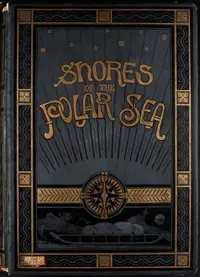"The Journey to the Polar Sea" by Sir John Franklin is a gripping narrative that recounts Franklin's daring expeditions into the unexplored reaches of northern Canada in the early 1800s. It plunges into the trials and triumphs of Franklin and his team as they navigate the unforgiving Arctic wilderness in hopes of charting the elusive North-West Passage. Beginning with their departure from England in May 1819 aboard the "Prince of Wales", the initial chapters highlight the meticulous preparations and the hurdles faced in assembling a crew for such a perilous undertaking. Franklin’s reflections on the journey provide an intimate look at their interactions with the land and its native inhabitants, as well as their cautious progression through a landscape fraught with peril. The emerging themes of exploration, survival, and brotherhood are shown through vivid depictions of the obstacles they encountered, setting the stage for remarkable adventures and discoveries in the polar seas.

The Journey to the Polar Sea
By John Franklin
Embark on a harrowing adventure with a determined explorer and his crew as they brave the freezing unknown in search of a legendary passage.
Summary
About the AuthorSir John Franklin was a British Royal Navy officer, explorer and colonial administrator. After serving in the Napoleonic Wars and the War of 1812, he led two expeditions into the Canadian Arctic and through the islands of the Arctic Archipelago, during the Coppermine expedition of 1819 and the Mackenzie River expedition of 1825, and served as Lieutenant-Governor of Van Diemen's Land from 1837 to 1843. During his third and final expedition, an attempt to traverse the Northwest Passage in 1845, Franklin's ships became icebound off King William Island in what is now Nunavut, where he died in June 1847. The icebound ships were abandoned ten months later, and the entire crew died from causes such as starvation, hypothermia, and scurvy.
Sir John Franklin was a British Royal Navy officer, explorer and colonial administrator. After serving in the Napoleonic Wars and the War of 1812, he led two expeditions into the Canadian Arctic and through the islands of the Arctic Archipelago, during the Coppermine expedition of 1819 and the Mackenzie River expedition of 1825, and served as Lieutenant-Governor of Van Diemen's Land from 1837 to 1843. During his third and final expedition, an attempt to traverse the Northwest Passage in 1845, Franklin's ships became icebound off King William Island in what is now Nunavut, where he died in June 1847. The icebound ships were abandoned ten months later, and the entire crew died from causes such as starvation, hypothermia, and scurvy.














